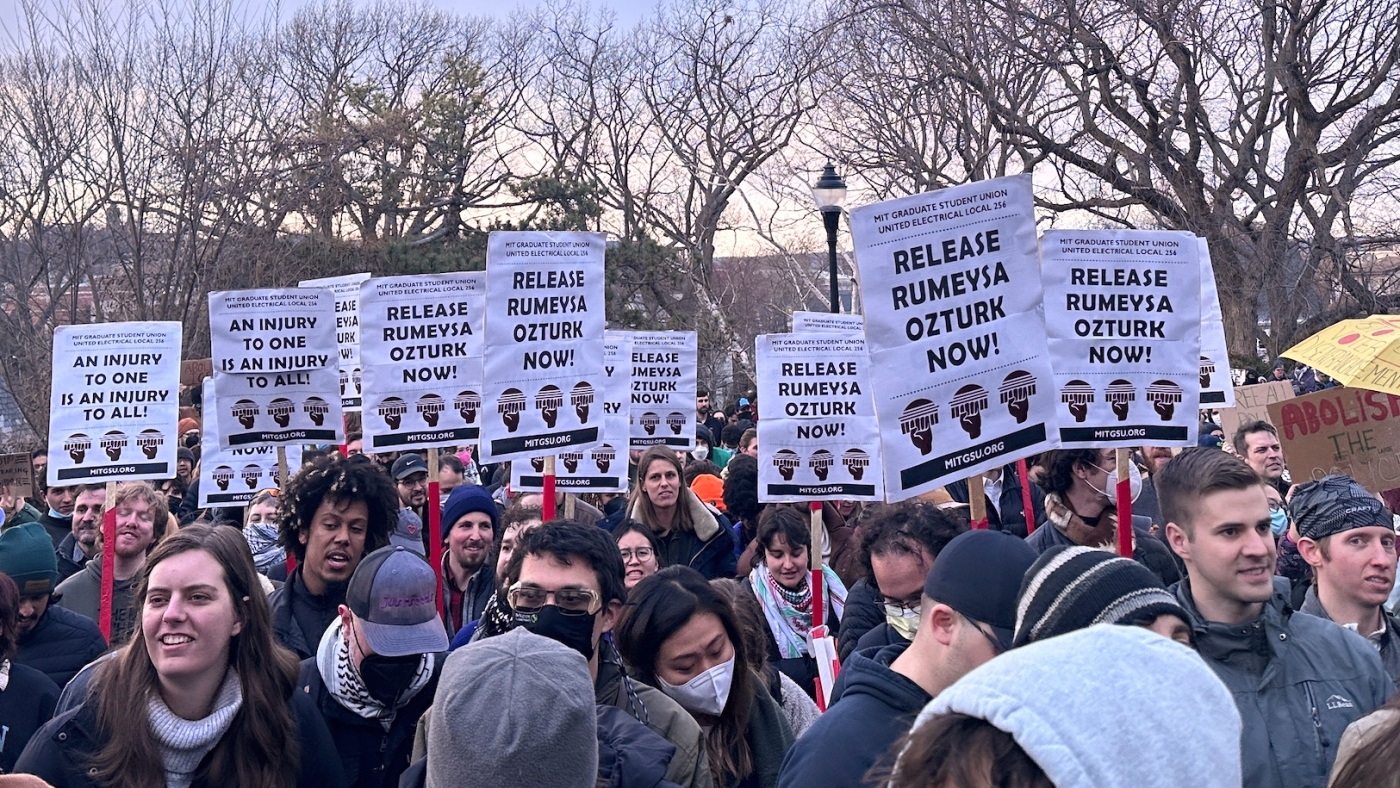The Rümeysa Öztürk Case: Where Immigration Policy Meets Free Speech
A Story That Captured National Attention
The detention of Rümeysa Öztürk, a Turkish Ph.D. student at Tufts University, quickly became more than just another immigration case—it evolved into a national conversation about free speech, government overreach, and the precarious status of noncitizens in the U.S. Her arrest in March 2025 by masked Homeland Security agents, followed by a dramatic legal battle, exposed the tensions between strict immigration enforcement and constitutional rights.
What made Öztürk’s case unique was not just the circumstances of her detention but the chilling implications it carried for free expression. At its core, this was a story about whether the government could use immigration laws to silence political dissent—a question that resonated far beyond her individual plight.
The Arrest: A Sudden and Controversial Detention
Öztürk’s ordeal began when she was taken into custody near her home in Somerville, Massachusetts. The involvement of six masked DHS agents suggested an unusually high level of enforcement for a student visa violation. But the real controversy lay in the alleged motivation behind her arrest.
According to her legal team, Öztürk’s detention was directly linked to an op-ed she co-authored in *The Tufts Daily*, which expressed pro-Palestinian views. Shortly after its publication, Secretary of State Marco Rubio revoked her F-1 visa, effectively making her deportable. Critics argued that this was a clear case of retaliation—an attempt to punish political speech under the guise of immigration enforcement.
Legal Battles: Courts Push Back Against Overreach
The judicial response to Öztürk’s detention was swift and revealing. A federal judge in Vermont ordered her immediate release, warning that her arrest could have a “chilling effect” on free speech. This was a significant rebuke to the Trump administration, which had been aggressively expanding its immigration enforcement tactics.
But the legal drama didn’t end there. After being transferred to a detention center in Louisiana—a move seen by many as an attempt to distance her from sympathetic judges—a federal appeals court in New York intervened, demanding her return to Vermont. These judicial clashes highlighted a growing resistance to the administration’s hardline approach, particularly when it appeared to infringe on constitutional rights.
Free Speech at Stake: A Dangerous Precedent?
Judge William K. Sessions III’s ruling in Öztürk’s case carried a broader warning: if the government could detain noncitizens for expressing political views, it would send a dangerous message to millions of others living in the U.S. This wasn’t just about one student—it was about whether noncitizens could safely criticize government policies without fear of retaliation.
The implications were profound. If immigration enforcement could be weaponized to suppress dissent, it would undermine a fundamental democratic principle: the right to free expression. Öztürk’s case forced the courts to grapple with whether noncitizens, despite their immigration status, were entitled to the same First Amendment protections as citizens.
Immigration Policy Under Scrutiny
Beyond free speech concerns, Öztürk’s case exposed flaws in the U.S. immigration system. The revocation of her visa without clear due process raised questions about transparency and fairness. Was this an isolated incident, or part of a broader pattern of using immigration laws to target political opponents?
The Trump administration’s aggressive deportation policies had already drawn criticism, but Öztürk’s detention added fuel to the debate. If a student with no criminal record could be abruptly detained and threatened with deportation over an op-ed, what did that say about the state of immigration enforcement?
Conclusion: A Case That Demands Reflection
Rümeysa Öztürk’s story is more than a legal battle—it’s a cautionary tale about the intersection of immigration policy and civil liberties. Her detention raised urgent questions:
– Can free speech be protected for noncitizens, or does immigration status make dissent risky?
– Should the government have unchecked power to revoke visas based on political expression?
– Where should the line be drawn between enforcement and overreach?
As courts continue to weigh in, Öztürk’s case serves as a reminder that immigration policy must balance security with fundamental rights. The stakes extend far beyond one individual—they shape the kind of society America aspires to be.











